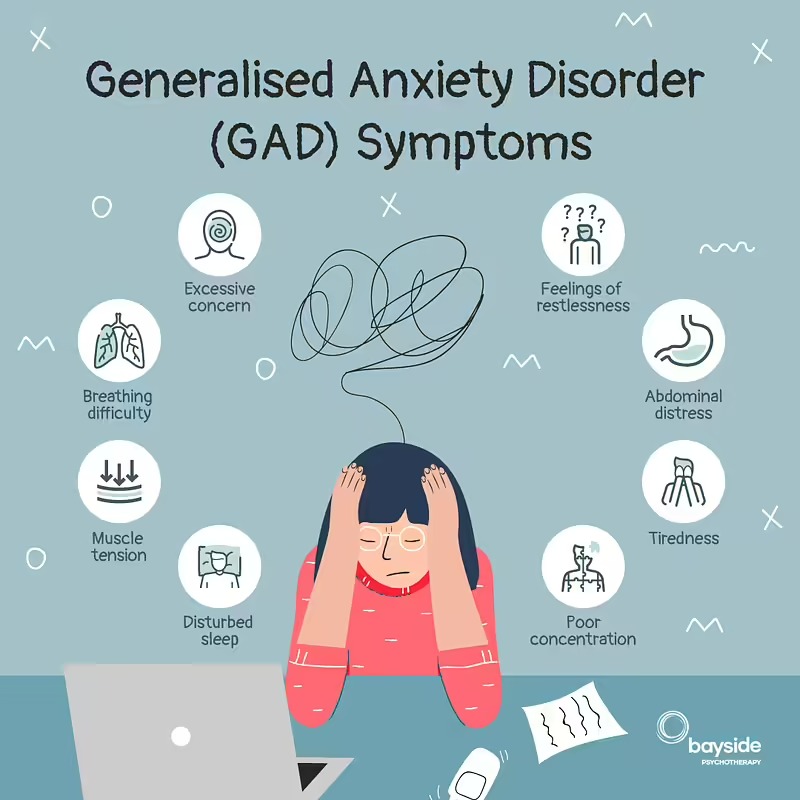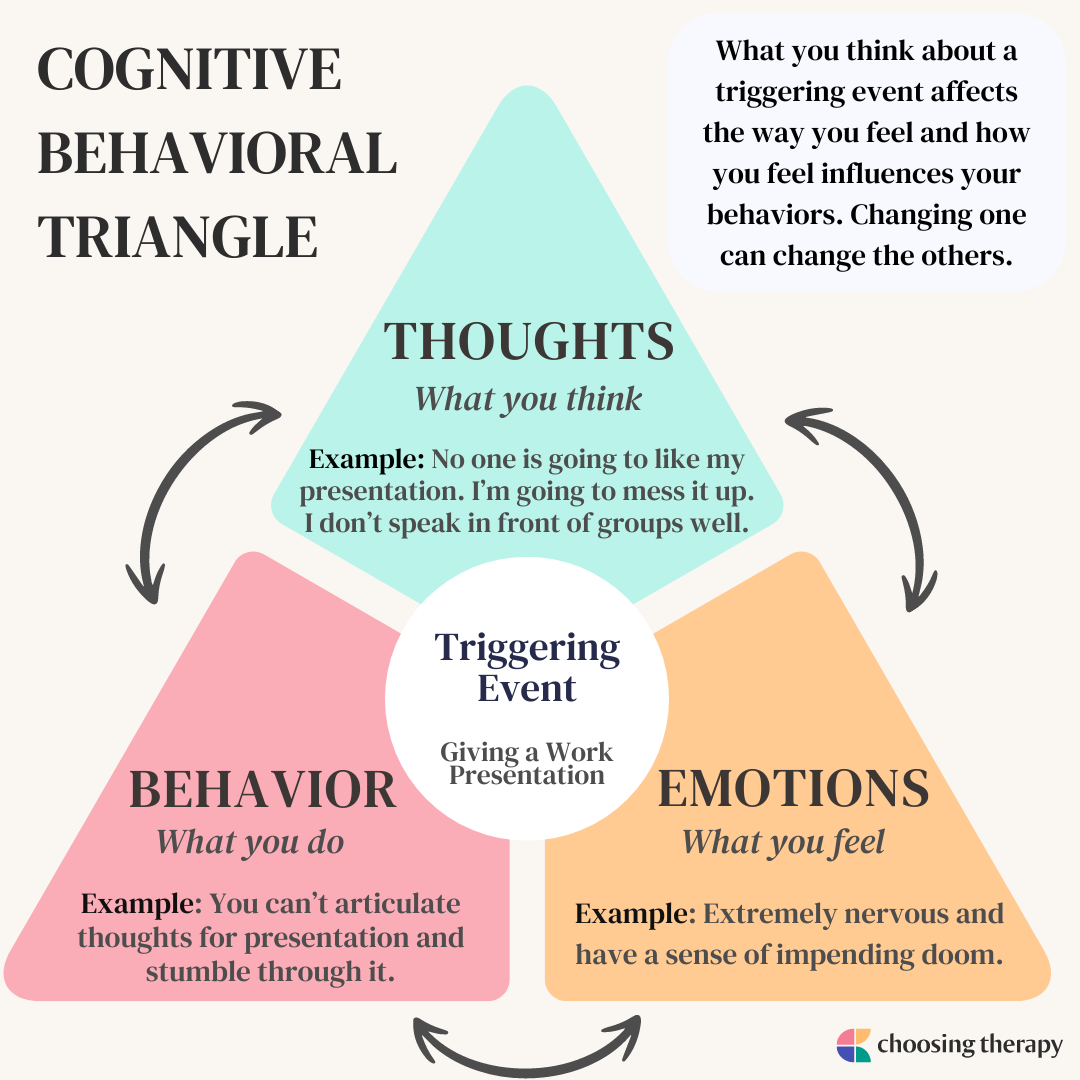Find balance and understanding with qualified counseling services for anxiety
Discovering Different Methods in Counselling for Stress And Anxiety Problem for Long-term Change
When taking on anxiousness conditions, it's crucial to explore a selection of counseling techniques. Each method provides special understandings and tools to help you handle your signs properly. You may find that incorporating strategies can yield the most effective results. However, recognizing the subtleties of these techniques is vital to cultivating long lasting change. Suppose the best combination could launch a brand-new level of psychological well-being for you?
Understanding Stress And Anxiety Problems: A Quick Summary
Stress and anxiety conditions, which affect numerous people worldwide, can considerably influence life. You could experience frustrating sensations of concern or fret that seem irrepressible. These feelings can result in physical signs like a racing heart, sweating, and even dizziness. Usual sorts of stress and anxiety problems consist of generalised anxiety condition, panic attack, and social anxiousness condition. Each has one-of-a-kind indicators, yet they all share a propensity to interrupt your regular and relationships.Understanding the origin of your stress and anxiety is essential. It may come from genes, mind chemistry, or life experiences. Acknowledging your triggers can help you manage your feedbacks better. It's important to bear in mind that you're not alone in this struggle. Lots of people deal with comparable challenges, and seeking assistance is a solid step toward feeling much better. By finding out regarding stress and anxiety conditions, you're already on the course to understanding and managing your condition better.
Cognitive-Behavioral Therapy: Challenging Negative Thought Patterns
In Cognitive-Behavioral Treatment, you'll begin by recognizing the negative idea causes that add to your anxiousness. As soon as you identify these ideas, you'll work with changing them with even more positive choices. Together, you'll construct effective coping techniques to aid manage your anxiety in day-to-day situations.
Identifying Adverse Idea Triggers

When you run into moments of distress, identifying the certain triggers behind your adverse thoughts can be vital in managing stress and anxiety. Beginning by taking note of situations that provoke feelings of worry or concern. Is it a crowded room, an upcoming due date, or a conversation with specific individuals? Write down these instances in a journal. This will aid you identify patterns in your thinking. Notification physical sensations that accompany your unfavorable thoughts, like a racing heart or tightness in your upper body. By pinpointing these triggers, you gain insight into what's sustaining your stress and anxiety. Understanding these links is the primary step in testing those thoughts and ultimately regaining control over your emotional feedbacks.
Changing Thoughts With Positives
Challenging unfavorable thought patterns is an important action in transforming your way of thinking and reducing stress and anxiety. You may usually discover on your own entraped in cycles of self-doubt or disastrous thinking. Rather of allowing these ideas determine your feelings, practice replacing them with favorable affirmations or reasonable choices. For example, when you believe, "I can not manage this," move it to, "I can handle challenges one step at a time." This easy change can considerably affect your emotion. Routinely recognizing and countering these negative ideas helps create a healthier inner dialogue. Bear in mind, it takes time and effort, yet regularly exercising this strategy can result in long lasting adjustment, equipping you to face stress and anxiety with renewed confidence and strength.
Structure Coping Approaches With Each Other
Changing unfavorable thoughts is just the start of managing anxiety successfully. To produce long lasting modification, you need to build coping methods that encourage you. Cognitive-Behavioral Therapy (CBT) assists you determine and challenge those unhelpful thought patterns. With each other, you and your counselor can discover just how these ideas impact your sensations and behaviors.Start by developing functional methods, like journaling or mindfulness exercises, that allow you to confront anxiousness head-on. When you encounter your fears progressively, you'll learn to react differently.

Mindfulness and Acceptance-Based Approaches: Cultivating Present-Moment Recognition
As you browse the complexities of stress and anxiety, including mindfulness and acceptance-based methods can significantly enhance your capability to cultivate present-moment understanding. By concentrating on the present moment, you'll locate that you can observe your thoughts and sensations without judgment (Counseling services for anxiety). This practice aids you acknowledge your anxiety without really feeling bewildered by it.Engaging in mindfulness workouts, such as deep breathing, body scans, or led reflections, allows you to ground on your own in your present experience. Acceptance-based approaches motivate you to welcome your feelings instead of combat against them. They lose their power over you.Incorporating these techniques right into your day-to-day regimen can transform exactly how you respond to anxiety when you accept your feelings. You'll create durability and learn to browse stressful circumstances with greater simplicity. Eventually, cultivating present-moment understanding lays the structure for long lasting adjustment, equipping you to lead a much more fulfilling life
Direct Exposure Treatment: Facing Concerns Gradually
Exposure treatment helps you confront your anxieties in a steady means, making it much less frustrating. You'll find out methods to encounter anxiety-provoking scenarios step by step, while additionally developing coping techniques to handle your responses. This approach encourages you to take control and lower stress and anxiety in time.
Progressive Exposure Methods
:max_bytes(150000):strip_icc()/GettyImages-814596226-5f685bb021444e6aba7994e617732302.jpg)
When dealing with anxiety, progressively facing your fears can be an effective way to reclaim control. This method, referred to as progressive exposure, includes slowly subjecting yourself to the scenarios or objects that activate your anxiety. Beginning with less daunting scenarios and progressively work your means up to even more challenging ones. If you're afraid of public talking, you could begin by speaking in front of a mirror, then proceed to sharing thoughts with a pal, and at some point address a little team. Each action helps desensitize you to the concern, building your confidence gradually. Remember, it's necessary to rate yourself and celebrate little success as you relocate through this process, strengthening your capacity to manage stress and anxiety successfully.
Building Coping Methods
Structure effective coping techniques is necessary for taking care of anxiety, especially as you face your concerns slowly - Counseling services for anxiety. One effective technique is direct exposure treatment, where you begin by facing your fears in a regulated way. Start with less intimidating scenarios and slowly function your means up to even more tough circumstances. This steady direct exposure aids desensitize you to anxiousness causes, making them much less overwhelming.Incorporate leisure methods, such as deep breathing or mindfulness, to soothe your mind during exposure. Track your progress, commemorating tiny triumphes along the method to improve your confidence. Remember, it's alright to take your time; the goal isn't perfection however consistent renovation. By developing these techniques, you'll empower on your own to browse stress and anxiety and accept life much more fully
Psychodynamic Treatment: Discovering Source of Stress And Anxiety
Psychodynamic treatment discovers the unconscious mind, revealing the origin of your anxiety. By analyzing your ideas, feelings, and previous experiences, this strategy assists you uncover underlying problems and unsettled issues that might contribute to your current stress and anxiety. You'll deal with a therapist to check out youth experiences, relationships, and psychological patterns that shape your feedbacks today.As you get insight right into these deeper layers of your subconscious, you'll begin to recognize exactly how past occasions influence your present behavior. This understanding can cause catharsis, allowing you to refine emotions you could have suppressed.Through the restorative connection, you can additionally recognize defense devices that may have created gradually, offering a more clear path to alter. Inevitably, psychodynamic treatment furnishes you with the devices to address your anxiousness at its core, promoting enduring transformation in your psychological health.
Integrative and Alternative Approaches: Integrating Strategies for Greater Efficiency
Integrating numerous healing strategies can enhance your journey towards taking care of anxiety better. By combining aspects from cognitive-behavioral treatment, mindfulness techniques, and holistic methods, you can produce a tailored strategy that addresses your unique needs. You may utilize cognitive-behavioral methods to challenge unfavorable thought patterns while incorporating mindfulness exercises to ground yourself in the existing moment.Additionally, discovering all natural techniques such as yoga exercise or meditation can promote relaxation and decrease anxiety signs. This mix enables you to develop greater self-awareness and resilience.Experimenting with these varied approaches can help you find what reverberates most with you. Keep in mind, it's concerning discovering a harmony that functions, instead of staying with a solitary click to investigate technique. This integrative method not just uses prompt alleviation however likewise cultivates long-lasting abilities for managing anxiousness, encouraging you to recover control over your life.
The Duty of Support Solutions: Building Resilience Through Connection
While it may seem that managing anxiousness is a singular trip, having a strong support group can play a vital function in your durability. Surrounding on your own with empathetic close friends, family, or support system produces a secure area where you can openly share your experiences and feelings. When you link with others, you remind on your own that you're not the only one in this struggle.These relationships offer support and can offer practical coping techniques that have benefited others. It's also a possibility to acquire perspective; close friends can aid you see circumstances in a different way, minimizing feelings of isolation.Moreover, psychological assistance fosters a feeling of belonging, which can greatly alleviate stress Clicking Here and anxiety symptoms. By leaning on your assistance system, you can build strength and deal with difficulties extra effectively. Keep in mind, getting to out for help is an indication of stamina, and it can make all the distinction in your journey towards managing anxiety.
Regularly Asked Inquiries
What Are the Typical Signs of Stress And Anxiety Conditions?
You could experience restlessness, exhaustion, trouble focusing, impatience, muscle stress, and rest disturbances. Physical signs can include quick heartbeat, sweating, and trembling. Identifying these indicators early can aid you seek ideal support and treatment.
For How Long Does Treatment Typically Last for Stress And Anxiety Conditions?
Treatment for anxiousness disorders generally lasts anywhere from a few weeks to several months. It actually relies on your private needs, progress, and the methods your therapist uses to help you handle your stress and anxiety efficiently.
Can Medicine Be Used Together With Therapy for Anxiousness?
Yes, medication can definitely be made use of alongside treatment for anxiety. Incorporating both methods frequently improves treatment performance, aiding you manage symptoms while checking out underlying issues through counseling (Counseling services for anxiety). Always consult your medical care supplier for individualized guidance
Exist Self-Help Techniques for Managing Anxiety?
Yes, there are a number of self-help strategies for handling stress and anxiety. You can practice mindfulness, take part in regular exercise, preserve a balanced diet, develop a routine, and make use of deep breathing strategies to help in reducing stress and anxiety signs effectively.
How Do I Know if I Need Specialist Assistance for Anxiety?
